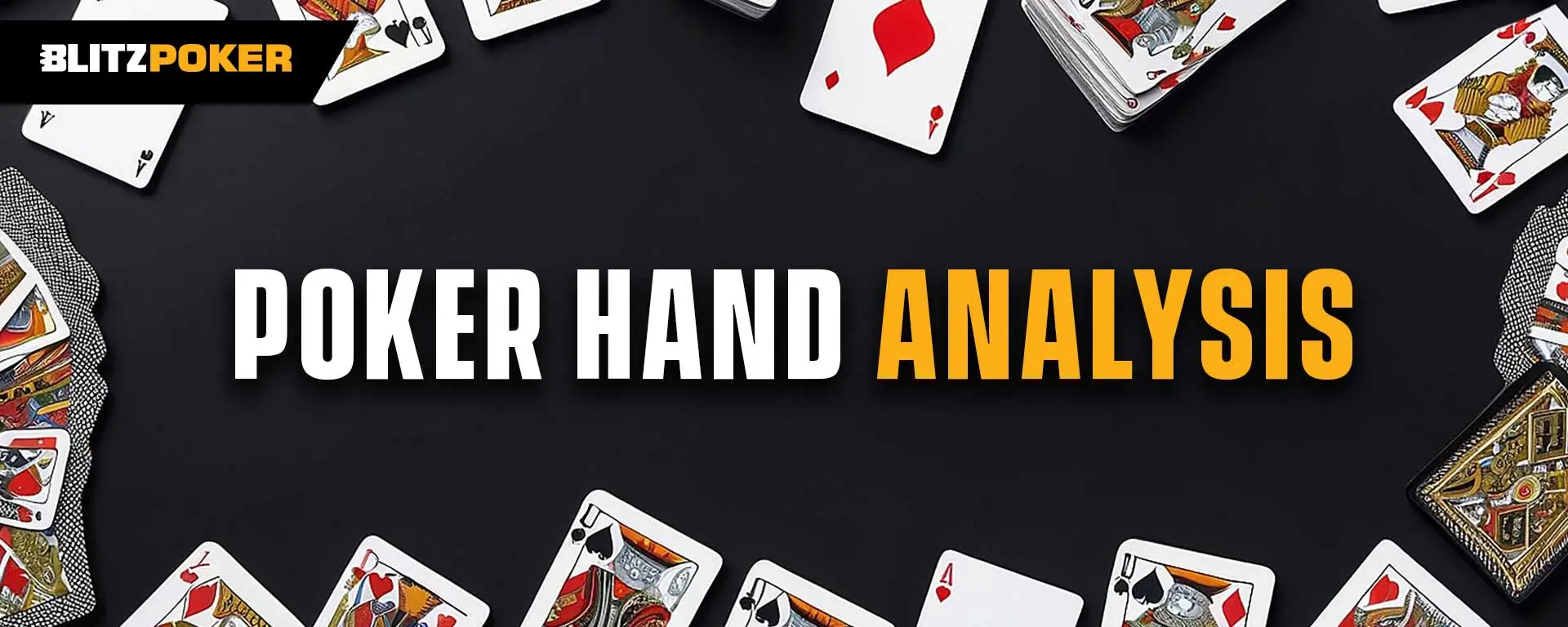Poker Hand Analysis
The key difference between strong and weak players is what they do after a poker session. Weak players play and then forget. They put themselves in tough spots and don’t fix past mistakes. Strong players review their hands. They thoroughly analyze spots and aim to fix their game’s flaws. When strong players find a leak, they prepare for next time by fixing it. Today, we’ll share steps to help you analyze your poker hands. Use this routine after a session, to warm up before playing, or whenever you want to do productive off-table work. For a great online poker experience in India, try BLITZPOKER. It’s a platform where you can improve your skills and enjoy the game. Now, let’s begin on spilling the secrets on how Poker Hand Analysis works.
Record your hands
Serious poker players should always record their hand histories. Live players can’t do this as easily, but they should note down important hands for later study. Online poker players have several tools for this, like Poker Tracker & Holdem Manager. No matter how you play, it would help if you had a way to keep track of your hands.
Prepare the hand history and spot the tricky parts.
Always format your hand histories the same way. This makes them easy to read, especially for public forums. A clear, consistent format helps you get better strategic feedback.
When preparing a hand history, look for the tricky parts that need analysis. Decisions before the flop, on the flop, and on the turn are usually simple, but the river can be uncertain. Here, we need to check if we have enough equity to call on the river.
Pre-flop Hand Selection
Before the dealing of community cards, check your starting hand’s strength. Look at your hole cards’ rank and suit. Think about their value in different positions. Use starting hand charts. These charts guide you on which hands to play based on their expected value.
Listen to your gut reaction
Does calling on the river feel too risky? Or does it seem like an obvious call?
Note down what your intuition tells you about this situation. Reflect on why you feel this way. Is it because your opponent has been playing aggressively? Or do you sense they might be bluffing? Trust your instincts, but also consider the patterns and behaviours you’ve observed during the game. Your gut can guide you, but combining it with logical analysis makes for a stronger strategy. So, write down these thoughts, whether in your mind or on paper, to help improve your decision-making in future hands.
Poker Hand Analysis: Expected Value (EV)
Expected value shows the average gain or loss from a decision over time. To find it, multiply each outcome’s probability by its value and add them up. Positive EV decisions are usually good, while negative ones are not.
Hand Equities
Hand equity is the part of the pot your hand might win on average. It considers your hand’s strength, potential draws, and chances of improving against opponents. Calculating hand equities helps decide if betting is profitable.
Range Analysis
Poker Range analysis estimates the hands your opponents might have based on their actions and the community cards. By narrowing down their possible hands, you can better judge your hand’s strength and adjust your betting strategy, whether online or offline.
Consideration Of Different Perspectives
When it comes to poker, considering different perspectives can significantly enhance your gameplay.
The Optimist at the poker table remains hopeful and positive, seeing every hand as an opportunity to win big. They stay upbeat even after losses, believing in their ability to turn the game around with strategic plays.
The Pessimist approaches each hand cautiously, focusing on potential risks and worst-case scenarios. They are wary of bluffing and big bets, preferring to play it safe and avoid unnecessary risks.
The Realist takes a balanced approach, assessing each hand objectively based on the cards, position, and opponents’ actions. They make calculated decisions, weighing the probabilities and potential outcomes before making their move.
By adopting these perspectives in poker, you can adapt your strategy to different situations, anticipate your opponents’ moves more effectively, and ultimately improve your overall gameplay and chances of success.
Seeking Similar Hands
When you’re playing poker, understanding your own hand and analysing your opponents’ is crucial. However, just understanding isn’t sufficient.
To elevate your game, and enhance your strategy and thought process, it’s vital to study hands that resemble the ones you’re playing. Finding these hands and learning how they can be played is simple. You can watch videos online or read posts on forums. If you’re keen, you can also utilise tracking software.
This type of research will boost your memory and sharpen your analytical abilities. Additionally, it will enhance your betting skills and your understanding of pot odds. You’ll be able to imagine various scenarios and strategise how the game might unfold with different hands. The possibilities are endless.
Poker Hand Analysis: Solver Analysis
Imagine being able to input a poker game into a device and watch it play out the entire game, predicting the future. This scenario has become a reality.
Many players now utilise poker solving programs that simulate entire poker games. These software tools help players grasp the theoretical aspects of the game and train them to think in terms of potential scenarios. They also aid in game analysis and understanding fundamental principles.
However, extracting data from these tools can be challenging, and they have a steep learning curve. Nevertheless, they are definitely worth experimenting with.
